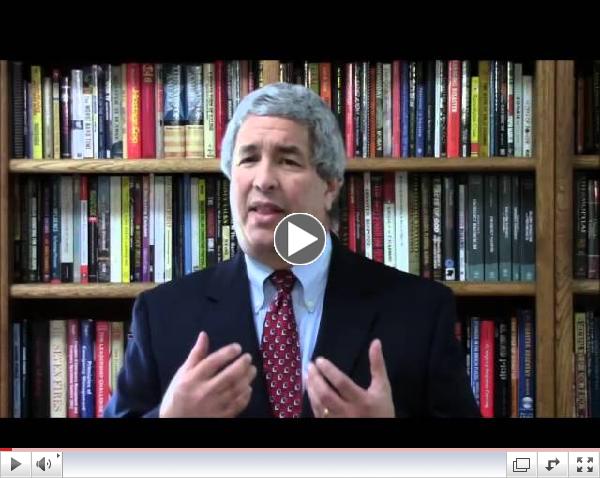|
Exploring Emergency Management & Homeland Security
|

Speculation on the Upcoming Role of Local Governments in Pandemic Recovery
by Timothy (Tim) Riecker
Last night I remotely facilitated a session with the senior leadership of a mid-sized city discussing multi-agency coordination, incident management, and other concepts, mostly within the context of the coronavirus pandemic. We spoke at great lengths about the role of local government in this, especially when they do not have their own health department, and what expectations there might be of them in the future. In this discussion I had the realization of a potential scenario that seems to hold a fair amount of probability, and it's one that is grounded in prior practice.
A bit of a disclaimer up front. My regular readers know that I usually avoid speculation. In the wrong context, speculation can cause undue stress or unnecessary effort. Obviously, that is not my goal. My goal is, as is typical of most of my articles, to promote thought and discussion on preparedness activities which are grounded in reality. As I've said to people many times over the past several weeks, it's not too late to prepare. There are still plenty of things that we need to be preparing for in the midst of our response, including contingency plans for other potential hazards, and obviously continued operational needs. The best emergency managers think ahead. What I'm writing is not a call to action, but rather a call to thought.
When it comes to vaccination (once a vaccine is developed), it's apparent that everyone will need to be vaccinated. While there are some factors which will force us to deploy vaccines in phases, including the supply of vaccine and the need to provide for fragile and critical populations first, there will eventually come a time when the population at-large will need to be vaccinated. Obviously, our public health system is not equipped to administer inoculations for everyone in every jurisdiction in a timely fashion. As such, there will be considerable reliance on local governments and advanced EMS providers, among others, to make this happen.
____________________________________________
© 2020 -
Timothy Riecker, CEDP
Tim Reicker is a founding member, partner and principal consultant with Emergency Preparedness Solutions, LLC, a private consulting firm serving government, businesses, and not for profit organizations in various aspects of emergency and disaster preparedness.
|
|
Bernstein Crisis Management
|
 Coronavirus and the Permanently Changed Face of 21st Century Crisis Management
Coronavirus and the Permanently Changed Face of 21st Century Crisis Management
by Erik Bernstein
(Today's article is written by Johnathan Bernstein, Erik's father.)
The face of 21st Century crisis management has been permanently changed, for worse and for better, by the coronavirus threat.
We have always preached the idea of preparing for the worst while hoping for the best. The reality is that most organizations don't fully prepare for the worst cases, they prepare for the type of crisis that has a relatively short and predictable bell curve from crisis through firefighting to business as usual.
Epidemics and pandemics don't fit that model - the fire starts burning and, for an unpredictable period of time, everyone is effectively playing whack-a-mole trying to contain it. More like a war we didn't start and which will require immense resources to win. The domino-like consequences contain a whole list of potential "sub-crises." Entire industries devastated, with attendant layoffs, mergers, etc. Activism, both violent and non-violent. Resource riots. Ongoing travel/trade restrictions slowing the movement of people and products. And while companies are short-staffed and distracted by the coronavirus, criminal hackers and other wrongdoers will do their best to take advantage.
UPDATE ONE DAY AFTER PUBLISHING THIS BLOG POST, from the Washington Post's Cybersecurity 202 newsletter: Hospitals that are already pushed to their limit dealing with a patient surge from the novel coronavirus pandemic are getting slammed with cyberattacks and digital scams, as well.
Some industries will evolve, some will even prosper.
And after this viral threat is wrestled into submission by the medical world, most of us on Earth now and for some time will believe it's just a matter of time before the next novel coronavirus evolves. Everyone is going to be jumpy and distracted after months of subjecting ourselves to fear-provoking news coverage. The slightest cough will draw embarrassing attention.
It's a challenge even for those of us experienced in different aspects of the crisis management field - and everyone else is making up their response on the fly.
However, I believe a crisis management benefit of this horrendous experience will that organizations will take extended-threat crisis readiness much more seriously. They will have discovered flaws in their existing business continuity and crisis communications planning and training that can either be eliminated entirely or mitigated to at least reduce future damage.
Part of the "new normal" in crisis management must - MUST - include much more robust crisis preparedness.
______________________________________________
Erik Bernstein is Vice President of Bernstein Crisis Management, a specialized firm dedicated to providing holistic strategies for managing crisis situations.
|
|
|
| 1918 Spanish Pandemic | Deadly plague of 1918 |
There have been frequent comparisons between the current COVID 19 pandemic and the 1918 influenza pandemic. While it is always a mistake to assume future disasters will mirror their historical counterparts, much can be learned from the past. Human nature does not change. This documentary provides a good summary of the origins and spread of the 1918 pandemic and the impact it had on various communities across the United States. |
The following are excerpts from my blog
Canton on Emergency Management. Please visit my blog to see the rest of my articles.
Social media is often pilloried as a source of misinformation and fear. But it can also offer tools to bring people together in these times of social distancing.
|
|

Welcome to the April edition of E
mergency Management Solutions
.
While the COVID 19 pandemic is still very much with us, many of use are already looking to recovery and the daunting task of transitioning from quarantine to the new normal. This is a difficult task as it requires trying to identify what changes will result from the pandemic. There will no doubt be considerable social disruption and a renewed emphasis on pandemic planning. It becomes even more critical that we maintain our focus on all-hazards planning and remember that we must deal with multiple risks, of which pandemics are only one.
Along those lines, Tim Riecker offers some speculation on how our relationships within local government might change as we integrate public health more fully in our planning. Johnathan Bernstein, Erik's father. offer some thoughts on how crisis management has changed as a result of the pandemic. My own contribution is some thoughts on how we can capture issues from pandemic operations through after action planning and corrective action programs.
Be well!
|
|
_
________________________________________________
After Action Reporting Begins Now!
Waiting Can Mean Missed Opportunities
_________________________________________________
Even though the COVID-19 pandemic is in no way over, it is not too early to begin capturing the lessons learned from response. There is no question that this response will have long-range implications for future operations. We will find ourselves rethinking the design of emergency operations centers, for example, and how we integrate public health agencies into EOC operations. Pandemic planning will become the focus for some time to come and will need to be balanced with other priorities.
The problem with most after action reports is that they are done after the fact. The typical "hot wash" captures issues that are in foremost in the minds of those present, people who are tired and looking to get home. It often misses the input of those who are not present. The after-action review meeting suffers the same fate; key participants are not always present. Even the best surveys have only a limited return.
Consequently, gathering after-action data needs to be an ongoing process that includes a mechanism for capturing issues and solutions as they occur and debriefing outside agencies and participants who are rotating out.
______________________________
_______________________
________
If you are having trouble viewing my featured article, try clicking on the link at the top of the page. You can always find my articles in the white paper section of my blog site, Canton on Emergency Management.
|
|
Resources
Free FEMA Courses on Economic Recovery and Resilience
The
National Center for Disaster Preparedness, Columbia University
, is currently offering two free web based FEMA courses: AWR-357W Principles of Community Economic Recovery and PER-376W Preparedness Actions to Promote Economic Resilience and Recovery. These courses can be completed at any time that is convenient for participants.
- AWR-357W Principles of Community Economic Recovery Description: This web based course addresses economic recovery as a key national priority, and a core capability as identified by FEMA's national preparedness goal. (Duration: 1.5 hours)
- PER-376W Preparedness Actions to Promote Economic Resilience and Recovery Description: The purpose of this web based course is to prepare private organizations (both non-profit and for-profit) in communicating and defining action steps they can take to ensure their economic resilience to natural disasters. (Duration: 1.5 hours).
Navigate to "View All Courses" and then select "Economic Recovery-Web Based Training"
FEMA Issues "Disaster Financial Management Guide"
FEMA has released the
Disaster Financial Management Guideto support jurisdictions in establishing and implementing sound disaster financial management practices, which are critical for successful response and recovery.
The guide identifies the capabilities and activities necessary to prepare and successfully implement disaster financial management while maintaining fiscal responsibility throughout response and recovery operations.
The guide also presents an overview of common disaster assistance and recovery funding programs that may be beneficial to recovery efforts.
To view the guide, please visit
https://www.fema.gov/plan.
___________________________________
Professional Development Opportunities
June 1-4, 2020
Emmitsburg, MD
The 2020 symposium theme is "Imagination, Improvisation, and Innovation in Emergency Management Education."
Since 1975, the Natural Hazards Center has hosted the Annual Natural Hazards Research and Applications Workshop in Colorado. Today the Workshop brings together federal, state, and local mitigation and emergency management officials and planning professionals; representatives of nonprofit, private sector, and humanitarian organizations; hazards and disaster researchers; and others dedicated to alleviating the impacts of disasters.
Nov. 13-18, 2020
Long Beach, California
The goal of the IAEM Annual Conference is to improve knowledge, competency level and collaborative skills. IAEM accomplishes this by attracting relevant high-profile speakers to address current topics and practical solutions.
|
|
 America's Forgotten Pandemic: The Influenza of 1918 America's Forgotten Pandemic: The Influenza of 1918
This book is a great companion to John Barry's classic book,
The Great Influenza. Where Barry's book largely focuses on the development of the US medical system and the public health aspects of the pandemic, Crosby sets the worldwide context and then dives into specifics on how the pandemic affected various sectors. Of particular interest is the two chapters where he compares and contrasts the outbreaks in two metropolitan areas, San Francisco and Philadelphia, a case study that emphasizes the importance of social distancing and the dangers of assuming that a pandemic will not reoccur.
The book is heavy on detail but Crosby is quick to point out how little we really know about the pandemic. He notes where data is incomplete and makes a case for the current estimates of deaths due to influenza being seriously understated.
______________________________________
|
Emergency Management: Concepts and Strategies for Effective Programs
Second Edition
by Lucien G. Canton
This book looks at the larger context within which emergency management response occurs, and stresses the development of a program to address a wide range of issues. Not limited to traditional emergency response to natural disasters, it addresses a conceptual model capable of integrating multiple disciplines and dealing with unexpected emergencies.
|
|
Need a speaker for your next conference? I offer keynotes, seminars and workshops.
 |
|
Three Reasons Why I'm the Right Speaker for Your Conference
|
|
|
Speaking Engagements
Conference cancelled? Consider a virtual conference or a webinar!
|
|
| |
|